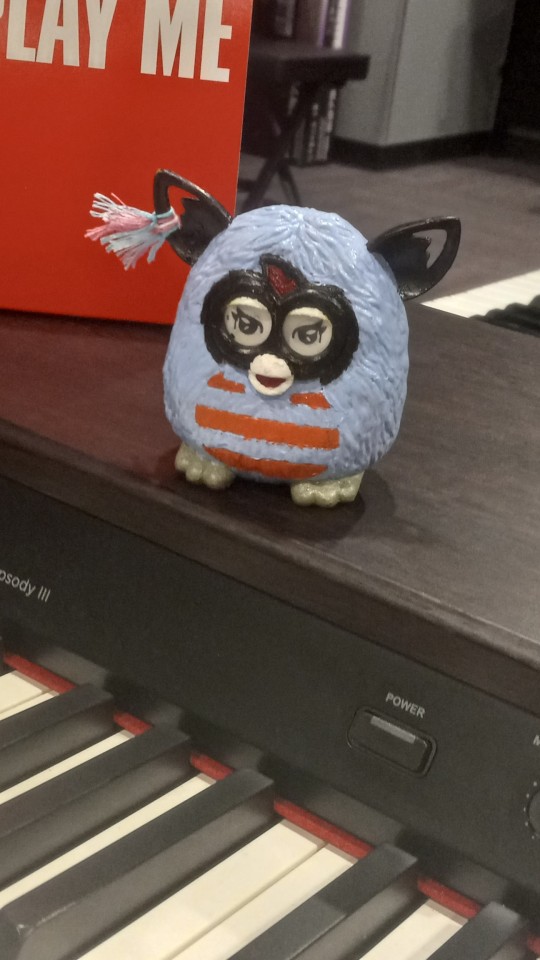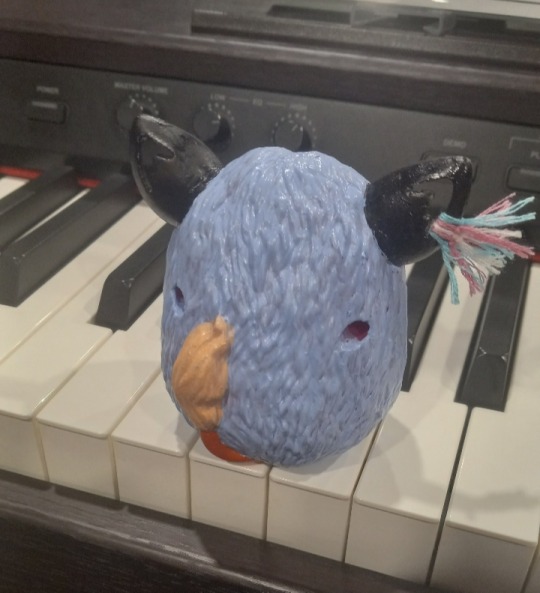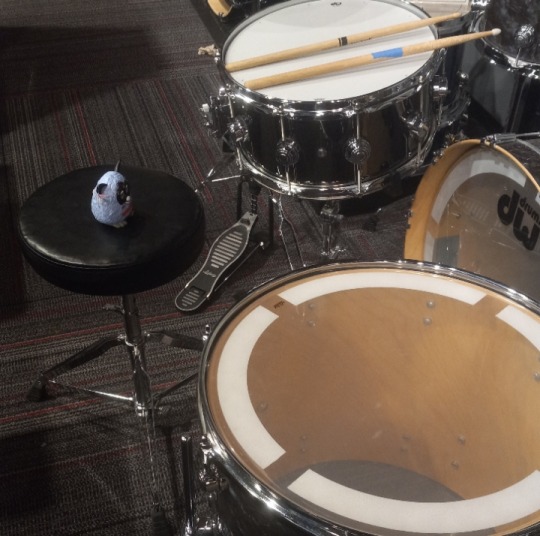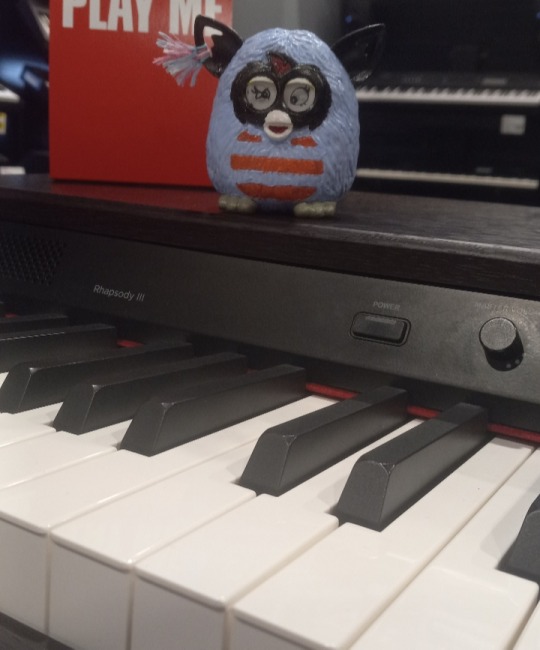#mango app
Explore tagged Tumblr posts
Text
Mango v. LingQ v. Anki
I’ve been using the above apps for a while now and I couldn’t find a ton of somewhat easy to understand comparisons/explanations of how to use these various cult favorites. I figured I would make one if anyone is wondering where to start or making a departure from Duolingo.
Standard langblr disclaimer: I am ultimately just a person on the internet, I’m not an expert in language learning or a world renowned polyglot. I’m not even an expert in any of these apps/programs. These are all just thoughts and opinions I have about the value of each app to myself as an average consumer trying to learn a language and intended to help other people decide where to spend their time.
Anki
Anki is an open source spaced repetition flashcard program. It has an incredibly loyal fan base of med students and people who just want to learn things. This is also the one I have the least experience with so I recommend diving into forums and other blogs who go in depth on all the ways you can use this program. The web version is completely free and there is an official paid mobile app. There are also unofficial paid apps, this is the source of great drama and discourse and I’m not touching that here. Spaced repetition essentially means that the program will present you with cards at intervals designed to maximize your retention. When you flip over a card, you have four options that boil down to: fail, hard, good, easy. This is how the program determines what to show you and when.
Key Features:
The main draw is obviously the spaced repetition system. It’s much easier and more effective than sorting manually.
Because it’s open source, there is a way to customize the settings and cards to do basically whatever you want. There are also tons of premade decks to import and either use as-is or use as a base.
The online web version is completely free.
You can add really any media type to the cards. You can add sound clips of pronunciations, images, even drawings and diagrams.
Having the four options is particularly useful for the nuances of learning a language. For example, for general vocabulary decks I’ll assign one “point” to general meaning, tense/part of speech, and pronunciation. Getting the general meaning but not the other two means I select “hard” when I flip the card.
Best uses:
Vocab or learning a new alphabet. Specifically for drilling any of those “slippery” words. I don’t know if this happens to anyone else, but there are some vocab words that just refuse to stick with me. I’ve found the Anki SRS does help pin them down.
Potential downsides:
While there are decks to import, there could always be errors that you won’t catch just seeing single vocab words with no context.
The available customization is labor intensive.
The UI for the official app and web version isn’t super slick and intuitive.
Even the best flashcards are ultimately just flashcards and have limits to their usefulness.
Mango
Mango is similar to Babbel or other programs that focus on speaking (and doing so quickly). I much prefer Mango to Babbel or any other similar app and find that it does what it says it will. Languages are split into units. Each unit has chapters and each chapter has lessons. A lesson will start with an optional pre quiz and a brief recording of a conversation that you will be able to follow by the end of the lesson. Each lesson concludes with a listening and reading quiz. It also utilizes spaced repetition and gives you daily flashcards to review.
You learn based on phrases rather than individual words. A long sentence will be presented in its entirety. The lesson will then go through each word individually before combining them into phrases and, finally, the full sentence from the start. Then you will learn vocabulary needed for variations. The activities are fairly standard for a language app: speaking, listening, multiple choice. You can also turn off the interactive feature and have the lesson run as a “speak and repeat” style podcast. It tracks the hours you’ve spent learning a language and there is an activity log, but no in depth stats.
Key features:
It is focused on speaking immediately.
Has a ton of languages and several dialects for those languages.
Focuses on phrases and patterns that are most useful if traveling or having brief, friendly interactions.
Presents information in a digestible way and isn’t overwhelming.
Includes culture and grammar notes.
$12.99 a month but most public libraries and schools give you free access. You can also set up a household account for multiple people and split the cost with friends/family.
The first lesson of any language is free, and some rare and indigenous languages are completely free to access.
Audio is native speakers. When you record yourself, your vocal wave pattern appears that you can compare with the native speaker.
Best uses:
If you are traveling soon and want to navigate basic, friendly interactions, this will get you there quick. Within 1-3 months easily, depending on the language and how often you practice.
I also recommend this as a starting place when you are totally new to a language or to learning a language in general. The structure is excellent for getting a feel for things.
This is also great if you studied a language previously and need to refresh your memory or get back into it.
Potential downsides:
The “record yourself” feature is fairly buggy and often freezes up. It can also be annoying to try and match the timing of the native speaker, but you don’t have to record audio to progress past those lesson points so it isn’t too much of an inconvenience.
It isn’t meant for total fluency. As stated, the lessons (at least that I have done) are focused on speaking while traveling and making small talk. Some of the early lessons teach you to say “sorry, I don’t speak [x]”. Which is very useful if going abroad soon, but less so if you would rather just be able to speak that language.
The regimented nature can make it feel slow/too easy if you are also using other methods.
The review flashcards only have a binary “yes/no” option which feels annoying for longer phrases or after using Anki-style cards.
With any course like this, you aren’t going to have much choice in the vocab you learn or prioritizing topics.
LingQ
I am honestly surprised I don’t see more about this. I think they have been making a bunch of updates recently so maybe the version I’m using is miles above previous ones, but it is shockingly powerful. It’s also the hardest to explain (which may be why I don’t see much written about it and why this is going to be a long section.) LingQ (pronounced “link”) operates on a hybrid comprehensible/massive input model. While Anki prioritizes memorization and Mango priorities speaking, LingQ focuses on comprehension and listening. LingQ is comprised of courses which are made up of lessons. There are pre-built courses made by LingQ but the real goal is to make your own (more on that later).
Each lesson within a course has an audio recording and a written transcript. Words you haven’t seen before are highlighted blue (when you start, that’s every word). You click the word to see the definition and assign it one of 5 statuses: ignore, new, recognized, familiar, learned, or known. “Ignore” is used for things like names or borrowed words, they won’t be counted in your stats. “Known” is for words you knew before seeing them. You likely won’t have any of these if you’re starting a new language with no prior experience. Levels 1-3 highlight the word yellow and it becomes a LingQ. You can create a LingQq using as many words as you want. You can manually change the status of a word when you see it. You can also do various review activities similar to Mango, and if you get a word right twice in a row it will automatically bump up a level. You can always adjust it back down if needed. LingQ is very focused on the value of listening to a language. You can add lessons to playlists and listen to them like a podcast.
My personal favorite part of LingQ is the ability to import lessons. Especially YouTube videos. The site has a browser extension that will import any content in your target language into a lesson as an embedded item. You can then read/listen to/watch that content right in the app and get “credit” for it. LingQ’s statistics are some of the coolest/most motivating I’ve seen. You get coins for completing tasks but those are really just to see a number get bigger. It also tracks the words you’ve read, how many words you know, the hours listened, and speaking/writing if you utilize their tutor marketplace or writing forum.
The free trial is very limited but it’s enough to poke around and get a feel for things before signing up, not necessarily to learn anything substantial. The monthly membership is $12.95 and there’s a $199 lifetime option as well. I definitely recommend spending some time playing around at the free level and then upping to monthly if you like it.
Key features:
The ability to import lessons. It will also create a simplified version of shorter content. This is an AI generated summary of whatever you’ve imported. I use this for videos where natural speaking cadence can make it hard to parse things sometimes. It’s easier/more productive if I know generally what’s going on.
The creation of LingQs. I just think it’s a really cool and useful way to approach comprehensible input. You can visually see the yellow fading as you understand more and more of a lesson.
You can export LingQs to Anki (theoretically). I’ve never done this myself and I’ve seen some forum posts saying it doesn’t work super well all the time but it is a built in feature.
In-depth stats tracking and the ability to consume all the content easily in app. The stats would be annoying if it wasn’t literally easier to watch a video via LingQ than on YouTube.
Community features. There are community challenges (like Duolingo) but also a forum to submit writing that will be corrected by native speakers and a marketplace of tutors to easily sign up for speaking lessons. The forum is free and volunteer based, but scrolling through I didn’t see anyone who didn’t have at least one reply. The tutors are paid at an hourly rate and you can also pay by the word to have them correct written work.
Super flexible. There really isn’t any one right way to use this app so you can structure it however you like and set your own goals/metrics.
Playlists and focus on listening. It really does help to constantly be immersed in what a language sounds like, and being able to read and listen to the same thing has been so nice.
Actually decently helpful emails and not just spam.
Best for:
Hardcore language learners. The app/site provides some guidance on how to get started and the basic idea, but you’ll need to play around with it and spend some time reading forum posts or the emails they send to find what works for you.
Getting to higher levels of fluency after maxing out other apps/self study methods.
People looking to spend a lot of time on language learning because they enjoy it. This isn’t snarky, but there’s a difference between wanting or needing to learn Spanish to communicate at work or on vacation and just really enjoying learning languages. This is an app for language nerds.
Potential downsides:
Very overwhelming. They technically say you can jump right in with 0 knowledge of a language and be good to go, but I think it would be hard to make a lot of progress unless you’ve learned other languages before. If you’re looking to learn a new language for the first time, I recommend starting with Mango to get your bearings.
Doesn’t teach new alphabets. This isn’t a huge issue for Mango since it’s speaking focused, but I wouldn’t jump into Arabic or Russian on LingQ without spending some time learning the alphabet with other methods.
User generated definitions. This is a double edged sword. The definitions being linked to sites like Globse can lead to wrong definitions, but because you’re seeing things in context it’s easier to catch. And looking into what a phrase means is a great way to learn if you are really into languages.
The import feature isn’t 100% perfect when it comes to videos. It will only create a transcript when the video has captions enabled or a transcript provided, otherwise it just shows up as an audio file. It will also sometimes randomly just not be able to import a video which can be annoying, but in the grand scheme of things these are very minor annoyances.
Time commitment. The method doesn’t require a ton of actively sitting down and reviewing vocab or reading new words, but it does assume that you’ll swap out listening to music or podcasts while going about your day with listening to content in your target language. This is all well and good unless you really enjoy listening to specific content while doing tasks or need help not getting distracted. It’s going to be a lot of incomprehensible noise for a while before you can parse it. This might not be a downside as much as something to keep in mind when considering how effective it’s going to be for you.
Not as active of a community. Maybe it’s just for my particular languages, but there definitely aren’t a ton of people actively doing things like challenges. This really doesn’t matter much to me but it could be a bummer if you’re looking for that.
tl;dr just tell me how to learn things
If you need to learn a new alphabet, start with that. Otherwise, Mango to get your bearings, Anki to add to your vocab as you get bored with Mango, and LingQ to realistically get “fluent”. Then start writing and speaking either using tutors or people you know or local language groups.
#mine#long post#ref#reference#review#language apps#language resources#langblr resources#language learning#resources#arabic langblr#langblr#mango app#lingq#anki#studyblr#language app review#app review#flashcards#language#italian langblr#duolingo
37 notes
·
View notes
Text
currently thinking about how chaos theory turns the traditional love triangle on its head and i'm actually half tempted to write a post about it but i just know that if i do it's gonna turn into an entire essay and frankly i'm not about that life right now
#i mean. idk. MAYBE i'll end up doing it#but if i'm gonna focus my energy on anything outside of job apps i'd rather it be. fun lighthearted stuff#and not media analysis (which i love. i majored in literature this is literally My Thing)#(but UGHHH I GET TOO SERIOUS ABOUT IT)#mango roars#jwct spoilers
89 notes
·
View notes
Text
frustrated with language learning apps and all i remember how to say in norwegian is like... "hei. jeg heter al. jeg har osten." which is only slightly helpful when i DO have the cheese. point's moot, otherwise.
#kirbco brand cola#WRACKING my brain. you know other words and phrases...#man sucks that duolingo is just bullshit and nonsense now cos a lot of other apps dont even have norwegian#i need to poke around more cos i get mango thru the library but i dont find it helpful#maybe i just need to push thru and see how ti does with expalining grammar#one thing i couldnt fucking stand abt duolingo was the lack of grammar lessons and rules and stuff#i wanna know!!!!!
9 notes
·
View notes
Text
anachronism
He’s handsy. More than anything he had been expecting, Romano is handsy, and Portugal does not need to be any sort of psychologist or poet to understand why. What catches him, though—and what he often spends his time considering—is the when, that variable shift from companionable air to congenial leading, amicable to insinuative to bold, before settling somewhere in the vicinity of amatory caressing.
He’s handsy, and Portugal, within his own personal revelations, likes it more than he tolerates it, indulges in it more than he expected, revels in it more frequently than he is willing to count.
And this, he knows, is Romano’s biggest fantasy, the thing that makes him hot and flushed and brazen, steadfast and sure beneath hands that have long since lost their hesitation. For all his blustering and posturing, Romano only ever cared for that which left him unsure, and Portugal understands in his own way, even relates to a certain degree. He expected it and he hadn’t.
It’s a truth that existed long before their paths wove themselves together so intrinsically, bonded in gold and sweetly-scented lavender, one that would exist long after their time in each other’s presence diverged, a truth that was laid out so plainly before him that he all but tripped and fell into it when he actually allowed himself to look. A truth Portugal could pluck from the skies of Alqueva and Lecce, shimmering like stars embedded in the outskirts of unwavering constellations, glittering fantastically before his eyes—a skittish, despairing, lonely truth.
Romano wants to be wanted. Not coveted nor revered nor exalted. Romano wants to be wanted, and Portugal, for reasons that dawned on him slowly at first then entirely all-encompassingly, wants him.
The notion of acting on this newly unearthed want had once been wholly at odds with Portugal’s nature. Romano has long existed within a sphere beyond Portugal’s notice, purview, and grasp, and he never cared to make any motion to extend his interest into that particular area of his brother’s imperium.
The nature of nations, Portugal knows, is that they are bonded to their people first and foremost. The nature of immortals, though, is that they are bonded to each other beyond what any human could ever conceivably fathom. As beings who live in the nebulous middle, their lives are only ever dictated by flux and wavering posture. All the more reason, then, he muses, to understand each other.
He knows Romano would laugh at the very thought of it, of being understood, of understanding those who have only ever burned his bridges. But—or so Portugal likes to believe—that was why they differed: he hadn’t intended to try, and Romano certainly hadn’t intended to deliver. To Romano’s endless annoyance and even more infinite delight, Portugal doesn’t care if he fails. This pleases him, and Romano, in return, gives, because nothing is expected of him and every gift, every action, every physical admiration is received like it’s all Portugal wants, with no expectation of other.
And maybe, Portugal wonders, just maybe, it is.
It’s a small thing, only a tease, a tempt with none of the promise, but as they leave their table from a shared lunch one blinding, blistering afternoon, Romano reaches behind him, pulls the hand from Portugal’s pocket, and places it on the small of his back, beneath the flutter of his pristine suit jacket. His eyes flick over his shoulder, and Portugal is already watching, already receiving, delighted in that way he gets when he makes a particularly good dig or catches an underhanded comment, revelry adorned in equanimity.
Portugal lets his lips turn up into a smile, hand pressing just that much more against Romano’s back, thumb tracing the line of his spine, and Romano grins at him, the keeper of a secret he doesn’t know he’s already shared.
Romano wants to be wanted. Portugal wants to try.
#aph romano#hws romano#aph portugal#hws portugal#portmano#hetalia#hetalia fanfiction#mango minifics#this is my attempt at taking my rambly notes app musings and turning them into something postable (even if the purple prose hits hard here)#this actually has quite a few hints as to my current portmano wip so. do with that what you will.#and please ignore my blatant undertaking in narrowing down my voice for portugal#i like to think im close to something resembling his canon personality but ill leave you all to judge
12 notes
·
View notes
Text
Feeling better, but not 100%. Sorry I put negativity on the dash. See ya tomorrow, if I feel better.

#🥭 mango speaks#( i deleted it. )#( i'm in one of those moods to delete all my apps and stare into the void )#( i deleted twitter and discord. no one really talks to me on those apps. )#( now if only i can get the crying spells to go away i'll be perfect )
5 notes
·
View notes
Text
12 straight hours of phone in bed give it up for 12 straight hours of phone in bed folks
#didn't want to get up and eat this morning so i put off taking my meds bc i'm not supposed to take them on an empty stomach but i didn't#ever get out of bed to eat bc i was. unmedicated. and now all i've eaten today is an entire box of cheezits and i still haven't gotten up#it is past 9 pm 🫶 i have 6 hours of class tomorrow 🫶 i am not doing well#i made a color-coded list on my little whiteboard this afternoon of all the shit i needed to do and that apparently took up all my brain's#capacity for action beyond cycling between the same 3 apps#i need to shower sooooo baaadddddddddd :( but i can't do that until i eat and my kitchen is downstairs and idk if i have food anyway#i forgot how much of a nightmare the beginning of winter quarter is :( and i haven't made my mango lassi froyo bc everything's So much money#woe is me boo hoo etc etc#i hope i get up i wanted to be asleep before midnight (it's a benadryl night for sure)#a post#don't think i've gotten more than 5 consecutive hours of sleep in over a week <3 yippee
2 notes
·
View notes
Text
Changing my Hinge location out of curiosity for the men but I just end up liking other women's profiles. I cannot pretend to be straight at my grown age smh
#mango rants#women are so beautiful#I stopped using dating apps for years now because i'm so tired of it but sometimes I slip a little
3 notes
·
View notes
Text
Meet the Furb: Mango
Name: Mango
Nicknames: N/a
Pronouns: They/It
Model: McFurby Boom
Fur Color: Light Blue
Eye Color: Black(?)
Favorite Color: Oranges
Nesting Items: dice
Extra info: Mango is a very small furby and thus cannot wear clothes or accessories, altho that doesn't stop it from trying! It tries to drink coffee while I am not looking, despite me telling it that drinking coffee is not good for them :(! Mango is actually a custom, although one day I'm going to have to repaint them because I didn't use a primer and so the paint is chipping off slowly. LOVE to try and eat dice, but they are too big so it seems it has resorted to just. Collecting them in their nest. A bit of a mischievous furby, but well loved!
Mango gallery:






#furby#furby fandom#furby community#safe furby#all furby#furblr#furbies#originals#f:mango#guys i genuinely had my app crash 4 different times while trying to edit this#tumblr does not want the mango lore out into the world
10 notes
·
View notes
Text
Im so back into learning German no one's gonna stop me
#⬆️ guy w 3 day streak on language learning app#busuu kinda fucks but uh if u have a library card check if they'll give u access to Mango Languages their app is less interactive but great#content. Fuck Duolingo! also tried Seedlang but it's too much for my 2015 ipad to handle lol maybe it'll be better on my phone#that requires a subscription tho :-P#just stick to Easy German vids tbh#htxt
4 notes
·
View notes
Note
This is so off topic but I keep imagining us just seeing Dee casually sitting with a phone scrolling through this blog
I know that’s technically impossible but it just feels so much like something he would do just to fuck around
A gift for you, anon <3

#ttrpgau art#mango sketches#not canon#just got a new (handmedown) phone with a lil pen in it so you KNOW i had to download a drawing app and try this baby out#this is the product lol#unfortunately it doesn't support krita so i can't work on updates with it :(#but i can do lil doodles
48 notes
·
View notes
Text
Links!
🍀 My art
🍀 My tags
🍀 Print store
🍀 Twitter
🍀 Ko-fi
#making this post so i can link it to my desc for the app users#because apparently thats what the majority of you are!#mango talks
10 notes
·
View notes
Note
Can you do 🥒 and 🥭? It doesn’t matter for whom I love all your children 💕
goldfish!!! :weep: thank you for the question!
🥭 [MANGO] What colours best represent them and why? Does this differ from their favourites?
MIRIAM: likes moss green and other earth tones--rust red and burnt umber. the occasional yellow brown and denim blue. (which isn't too different from what i think she's like: miriam is pretty transparent, no matter how hard she tries, and she's always a mix of stuff that's practical and workable, and secretly sort of cozy-comfy deep down.)
ELMO: likes bright stuff and big prints! dandelion yellow and azure blue and neon pink and metallics/holographics. fun, cheerful, distracting harmless. (i like them with shades of purple mostly, because it really shows off that duality--the colour of bruises and stormclouds, but also lavender and gemstones. take your pick.)
MIGUEL: he'll say he prefers black. if you tell him off about being boring, he'll say blue. also boring but then he'll be grumpy because those are my actual favourites? why would you ask if-- (he's not wrong about the black, although he thinks puffer-jacket-black and i think chrome-black. i also think like, deep burgundy, as dark as it can go. for the HG parallels and because you can't quite tell what's going on until the light hits it just right.)
🥒 [CUCUMBER] How innocent are they (unaware to the bad happenings around them)?
MIRIAM: very aware that Bad Things are happening, but she's so hyperfocused on what's happening in her immediate circle that she misses a LOT of the bigger picture. like, she's streetwise, but most "irrelevant info" (miri PLEASE) just doesn't make it onto the graffiti notes yk?
ELMO: very aware that Bad Things are happening, very aware of how big it's spreading. are they one of those Bad Things? psh, nawww... haha......
MIGUEL: the most normal about it. very aware that Bad Things are happening, trying to address them...? sort of. He Pretends He Does Not See Them (But He Does). it's ok: if he's right about HG, things will resolve themselves as he goes.
#THESE EMOJIS ARE SO DISORIENTING tell me why i thought the mango was a pineapple?? i had to check the app LMAO#miriam basri#fhr: ellian lam#miguel serrano
4 notes
·
View notes
Text
The only downside to my parents having friends close to my age is that I dont talk much so they tend to talk to me like im a lot younger than I actually am
Like bestie I am 5 years younger than you at MOST
I get that you're cishet and married and have a kid so our lives are VASTLY different here but im TWENTY FOUR
Im quiet and awkward and autistic and won't look you in the eye and you dont see me a whole lot cuz im very noise sensitive and you people are loud
But you dont need to talk to me differently than everyone else here thanks
It just feels condescending
#i really need to come out to my parents so they stop referring to me as their daughter#it didnt used to bother me but its starting to REALLY bother me#also i got ma'am-ed at the grocery store twice last sunday (which ive always hated) and came home and drank 3 glasses of wine#and then felt like shit for like 3 days#ive been avoiding anything that needs to process through my liver to give it a rest which means ive been without pain meds all week#cuz the other pain med i have is ibuprofen which makes my acid reflux worse and it was already pretty bad all this week also from the wine#SO#no more alcohol for awhile#because ive spent most of this week feeling like death#i am going to be making myself a nonalcoholic mango margarita later tho#*frozen* mango margarita#with chamoy sauce to make it a little spicy so its not just a mango slushy lol#and tamarind soda if they have it#walmart app SAYS they have it but ive never seen it and ive LOOKED for it#but its supposed to be in the same place as the chamoy sauce#which they better not be lying to me about
3 notes
·
View notes
Text
Duolingo Sucks, Now What?: A Guide
Now that the quality of Duolingo has fallen (even more) due to AI and people are more willing to make the jump here are just some alternative apps and what languages they have:
"I just want an identical experience to DL"
Busuu (Languages: Spanish, Japanese, French, English, German, Dutch, Italian, Portuguese, Chinese, Polish, Turkish, Russian, Arabic, Korean)
"I want a good audio-based app"
Language Transfer (Languages: French, Swahili, Italian, Greek, German, Turkish, Arabic, Spanish, English for Spanish Speakers)
"I want a good audio-based app and money's no object"
Pimsleur (Literally so many languages)
Glossika (Also a lot of languages, but minority languages are free)
*anecdote: I borrowed my brother's Japanese Pimsleur CD as a kid and I still remember how to say the weather is nice over a decade later. You can find the CDs at libraries and "other" places I'm sure.
"I have a pretty neat library card"
Mango (Languages: So many and the endangered/Indigenous courses are free even if you don't have a library that has a partnership with Mango)
Transparent Language: (Languages: THE MOST! Also the one that has the widest variety of African languages! Perhaps the most diverse in ESL and learning a foreign language not in English)
"I want SRS flashcards and have an android"
AnkiDroid: (Theoretically all languages, pre-made decks can be found easily)
"I want SRS flashcards and I have an iphone"
AnkiApp: It's almost as good as AnkiDroid and free compared to the official Anki app for iphone
"I don't mind ads and just want to learn Korean"
lingory
"I want an app made for Mandarin that's BETTER than DL and has multiple languages to learn Mandarin in"
ChineseSkill (You can use their older version of the course for free)
"I don't like any of these apps you mentioned already, give me one more"
Bunpo: (Languages: Japanese, Spanish, French, German, Korean, and Mandarin)
#EDIT: Added a great resource for ESL and African languages that weren't found elsewhere#I do NOT recommend memrise and will talk about it another day but#langblr#duolingo#duo#language learning#language learning apps#mandarinblr#resource#reference
77K notes
·
View notes
Text
Still trying
BEFORE

After

0 notes
Text
should a girl delete twitter because a bunch of neonazis decided to gang up on her for speaking her truth or should she be brave?
#this is def not the first time this has happened but for me to garner this type of response because of a robot girl????#i think me being brave would be deleting the app altogether#mango whines
1 note
·
View note